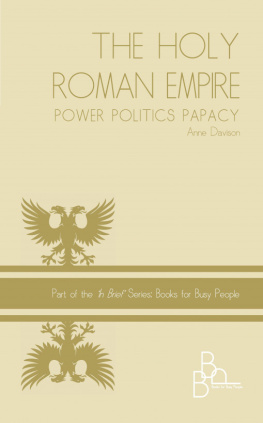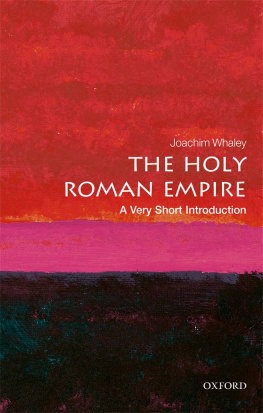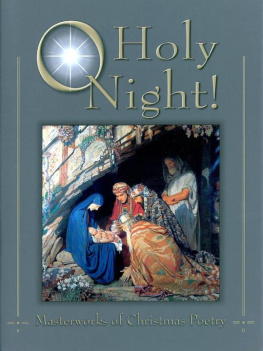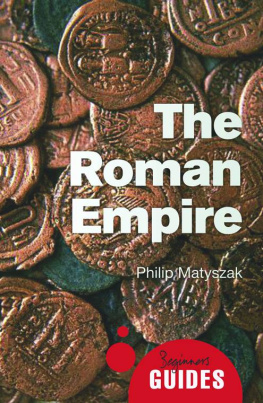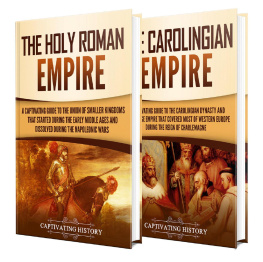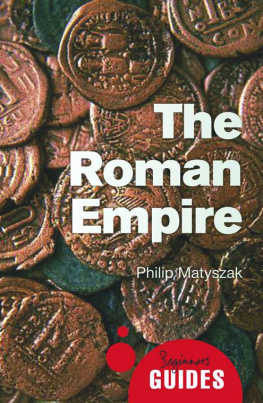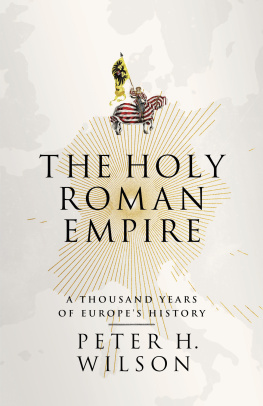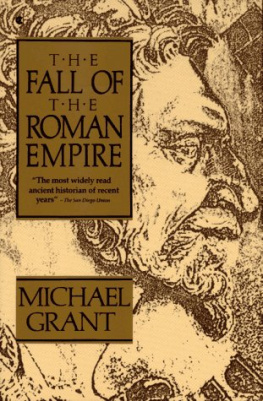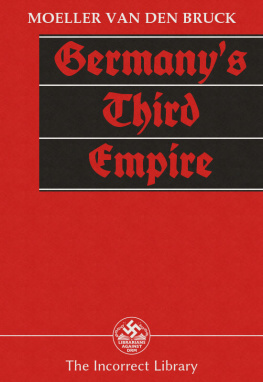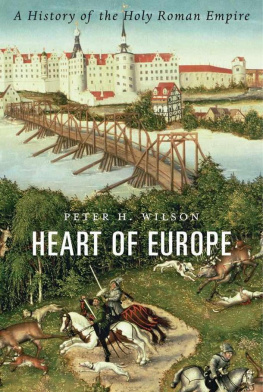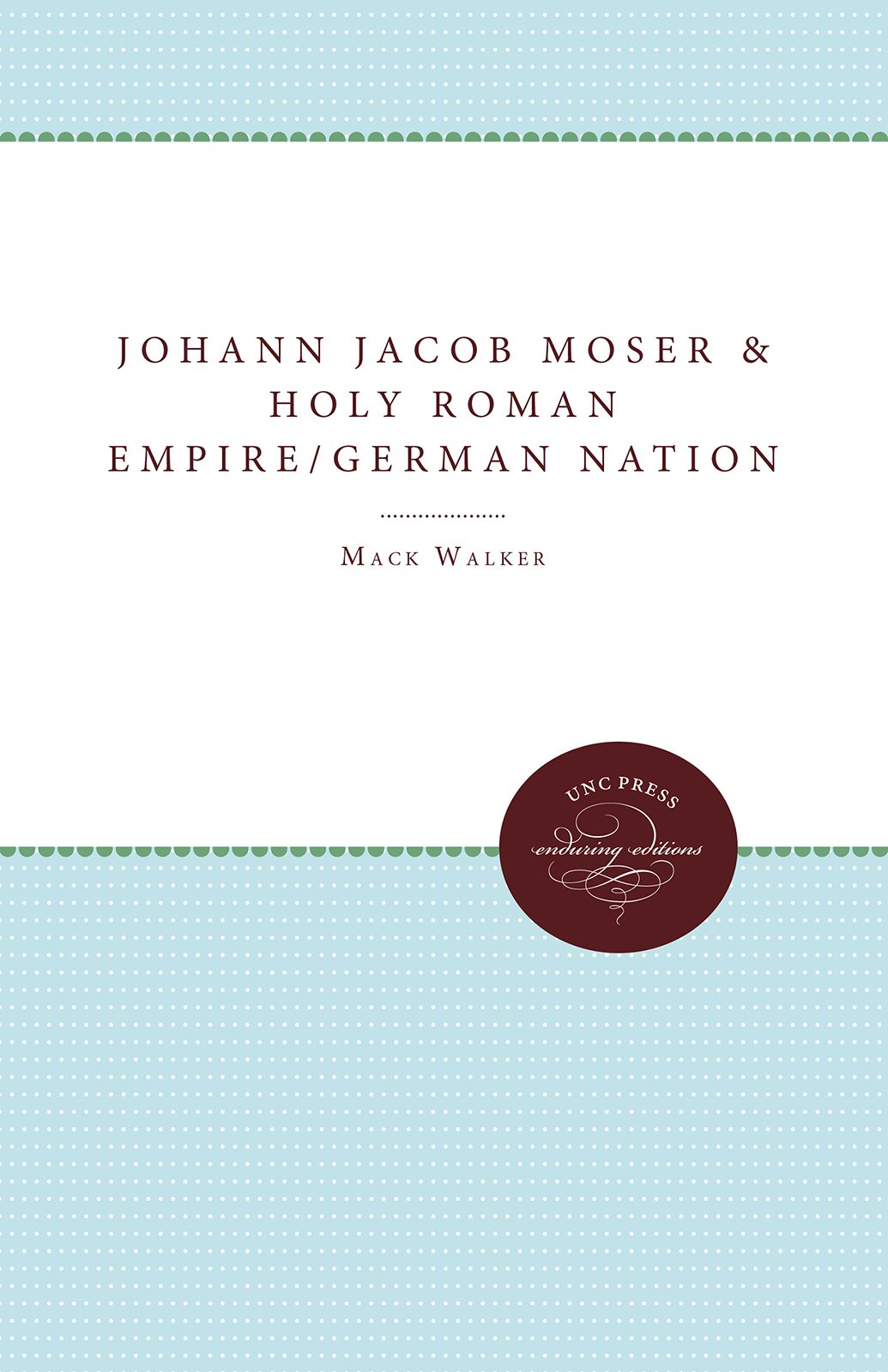Walker, Mack.
Johann Jakob Moser and the Holy Roman Empire of the German nation.
Bibliography: p.
Includes index.
1. Moser, Johann Jakob, 17011785. 2. Political scientistsGermany. 3. Holy Roman EmpireConstitutional history. 4. Holy Roman EmpireHistory1648-1804. I. Title.
Argument and Acknowledgments
Germany is a state no longer, wrote the young Hegel in a political essay on the constitution of the German Empire. What cannot be grasped does not exist. The German constitution Hegel meant was the one expounded by a Stuttgart neighbor of his boyhood, the then aged but still famous constitutional jurist Johann Jakob Moser. Hegels verb begriffen carries both the rational sense of systematically comprehended and the political sense of seized or laid hold of; and the political and rational meanings were for him inseparable. The natural lawyer Samuel Pufendorf, writing a century and a half before, had taken much the same view of the German constitution. For Moser, though, the essence and even the merit of the German constitutional or public law was that it could not be wholly grasped. For him too rational comprehension seemed bound together with political power and manipulation; but for him that was cause to distrust and to fear the political uses of juridical reason. Hegels proof of the empires nonexistence was its incapacity to summon up and to order military force. Moser thought military force, and especially the political means and motives for mobilizing it, were the supreme threats to the German constitutional order.
Most of us are far more nearly the intellectual heirs to Hegel than to Moser. A thought underlying this book at its inception was that it is not practicable, by means presently available, to bring together that complex of public and personal relations, the constitution of the Holy Roman Empire of the eighteenth century, into a coherent and manageable compassnot while retaining any sense of how it was lived. So I have tried to strike a path through it. Whoever tries to understand German public life between Luther and Napoleon finds himself, whenever he takes his eyes from a handful of courts, ministries, and soldiers, contemplating a maze. It is not a trackless maze, for it is crisscrossed with a thousand tracks going everywhere and sometimes nowhere; not an impenetrable maze, for most of the paths and corners are easy enough to penetrate, so to lose sight of the rest; not a hopeless maze surely, for, after all, people moved about in it at least with no more bewilderment or despair than people commonly feel. In Moser I have chosen a guide for this exploration: somebody who traveled through more of it, more parts and at more levels, than almost anybody elseat least, than anybody else who left such voluminous reports of his travels and experiences.
Johann Jakob Moser was of the profession which grew up to conduct the public business of Germany in the maze, that mix of administrator, politician, and scholarly jurist who arranged, negotiated, and formalized its disposition of rights and authority. What I have seen on this journey and describe here has been seen, on the whole, through his eyes. An important advantage in this, besides the breadth of his experience, is Mosers determination and conviction, as jurist, that he must see and describe things exactly as they were. A cardinal principle of his profession was to restate, in law, the realities of political transactions and relations. But this is a deceptive advantage too. I did not expect, at first, to give much attention to his private life, experience, or beliefs. Still, to understand his place as a jurist it seemed necessary to know something of his professional relations with other academic jurists and of his everyday administrative and political circumstances. To understand these it has seemed important to know something of his personal character and of his religious faith. This is so despite his lifelong efforts to keep these several spheres of his life separateindeed, much of the most revealing biographical and even constitutional detail I have found has come from the intellectual and moral strains these efforts imposed upon him. The severely chronological scheme I adopted for this book has proved essential for discovering and interpreting these tensions and crossovers at compartmental boundaries; and they in turn have carried the story along.
In this mode I find that I have touched on themes of wider import than I had supposed as I worked; but I have treated them mainly in the workaday terms and protean forms in which Moser discerned them. At the end I find I have arrived at a sense of analogy or integrity between Mosers own dispersed and errant career, and the law and empire to which he was committed. The mass of detail, and the extraordinary difficulty of ordering it by mind or might, was itself an essential characteristic of the German imperial constitution, inseparable from its true nature and achievement; it ought not be ignored or dismissed. Much the same was true of Moser, whose own style and thought embodied that quality of the empire. I have tried neither to romanticize nor to rationalize the Holy Roman Empire. It was a political and legal structure with many merits, but neither romance nor rationality was notable among them. And as biography, this is one without a hero in a literary sense, for I conceive that the trivialities and frailties apparent in Mosers work and person were interwoven with his courage and honor, not departures from them, so that right representation of each depends on the other. Readers should not expect a protagonist who always knew what he was about, nor a political institution with clear deduction of power and right.
I have discovered a great deal about that world, though, following Moser about in it. There are very many nooks and openings along the way that I have been unable adequately to explore. To others who may wish to learn about it too, I offer here a stroll through the public life of the Germany of the Old Law, made in the company of someone the reader may come to know.


